Features
Many ‘firsts’ of the Buddha
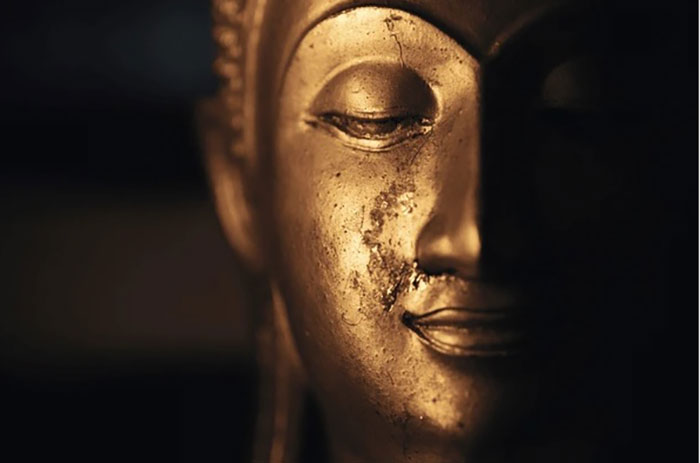
By Dr Upali Abeysiri
May I be permitted to add to the thought-provoking article, “The Buddha I believe in” (The Island, 24th February) by my very good friend Dr Upul Wijayawardhana, a few comments on some of the ‘firsts’ achieved by the Buddha. When we were young medical students in the early sixties, living at the just established Jeevaka Buddhist Medical Hostel, named in honour of the physician to the Buddha, I never imagined that Upul and I would be sharing a passion for the study of the scientific aspects of Buddhism, in the evening of our lives!
The Buddha, born a human being, is characterised by his superhuman achievements. His unique wisdom, compassion, exemplary life style and leadership made some deify him. He was the first to establish a democratic code of conduct as enshrined in the Vinaya pitaka. However, the Western world has continued to ignore many of his ‘firsts’ at the same time using them liberally, sometimes even crediting others instead. In fact, there were attempts to change the period of Buddha’s life to corroborate the narrative that the Buddha was influenced by Greek philosophers whereas the truth was just the opposite.
Some of the firsts achieved by the Buddha are as follows:
He showed that there is no permanent entity in living beings, be they named the spirit, soul or athman, but a constantly changing psychic component that depends on the physical component and vice versa. He agreed with Mahavira, the contemporary Jain teacher, that there is no creative god but disagreed with Mahavira’s belief in a permanent entity, athman. Some wrongly attribute Buddhist philosophy to be a variant of Vedic and Jain philosophies, despite the description of the summum bonum: Nibbana in Buddhism.
The Buddha also showed that the psyche is not a permanent entity but consists of a stream of units arising and ceasing. However, Western scientists attribute the first description of the momentary nature of consciousness to William James, the nineteenth century American philosopher who is considered the father of American philosophy.
He was the first to state that physical items are constantly changing processes though we misperceive as substances; solids, liquids, and gases (description of Mahabutha or elementary physical processes in Abhidhamma pitaka). Quantum physics has since discovered that quantum particles that make the universe are waves but appear as particles when we observe and that matter and energy are interchangeable. Buddha further stated that basic processes arise, decay, and cease due to many conditions replaced by new processes. Similar new processes arise to replace the ceased processes provided similar conditions for arising exist. However, as conditions themselves change, the newly arisen conditions also change. Thus, he described the universal characters of impermanence (anicca) leading to unsatisfactory nature (dukkha) with emptiness of a permanent entity in the universe (anatta and sunyata).
He classified the animal kingdom into four categories according to type of birth; andaja or egg borne, jalabuja or womb borne, sansedhaja or formed in an external medium and opapathika or spontaneous birth. However, the first classification of the animal kingdom is attributed to Aristotle who lived about three hundred years later. He classified according to motility such as flying, swimming, or moving on land; on birth as egg borne or womb borne. Since then, his classification has been abandoned as inaccurate, for example flying animals include insects, mammals, and birds as one category. Classification by Buddha agrees with modern science, perhaps, except for replacement of spontaneous birth by cloning achieved through current scientific methods, as spontaneous birth is not recognised as it is not yet proven by scientific methods.
Buddha described six sense organs in contrast to five attributed to Aristotle who did not include the mind. As modern science now shows that some information such as position of joints, visceral pain, memorised data etc. arrive directly to the mind, Buddha’s classification seems vindicated.
He described infinite world systems (lokadhathu now named galaxies) in the universe into thousand-fold, ten thousand-fold, etc., scattered in space. Further, he expounded that the universe is in a cyclic process expanding and contracting for eons before dissolution and reformation (samvatta or eons of destruction, samvatta– tthayi or eons of continuation of chaos, vivatta or eons of world formation and vivatta–tthayi or continuation of formation as well explained in Anguttara nikaya; group of fours and group of sevens suttas). He also explained how several suns appear before destruction of the universe (Anguttara nikaya group of fours sutta).
This parallels the description of black hole formation in science. Apart from further classifying the living beings of the universe, depending on the development of the mind and results of past kamma to 31 planes, he refused to discuss cosmology any further as it was not conducive to progress in the path of purification of the mind. What little he described was to illustrate impermanence as a universal characteristic. Later authors confused this classification by trying to fit it into the knowledge of the universe in ancient India around a mountain Mahameru based on Hindu mythology. The new theory on the universe is attributed to Stephen Hawkins who postulated that it started with a big bang from a singularity which agreed with the creation theory. However, shortly before death, he with his colleagues, advanced a new theory; the universe existed and contracted to a singularity before the big bang (As described by his colleague Bernard Carr, emeritus professor of astronomy in the New Scientist, 1 April 2023: p47).
The Buddha was the first to distinguish that while seeing and hearing are between the object and the subject at a distance, which he termed asampatta, smell, taste and touch are due to direct contact between the object and the subject (sampatta) and that there is a difference between touch and all other senses. The reason given in Abhidhamma for this difference is that contact between the basic physical processes of the object and the basic physical processes of the body sense bases of the subject are more forceful in touch in comparison to others like smell and taste.
According to quantum physics, in touch what is felt is the repulsive force between electrons of the physical processes of the object and the subject and that there is no real contact or chemical reaction between them whereas in smell and taste the physical processes of the object and subject exchange electrons and chemical reaction happens to stimulate the senses (New Scientist, 8 April 2023: p37) which confirms what the Buddha stated.
He was the first to describe breathing meditation (Anapana Sathi) without interfering in the normal process of breathing. This contrasted with meditation on physical and psychic objects were practised in ancient India (including application of breath control or pranayama supposed to awaken hidden powers of the body) with some attaining prolonged focus of the mind on a single object, also called absorption or jhana but not attaining enlightenment. It is insight meditation (vipassana) that the Buddha invented which leads to that path.
The Buddha described the mental factor sati or mindfulness as the basic ingredient in meditation which has now been given a new name in psychology; metacognition.
As Upul correctly stated the Buddha was a human being, not supernatural, with an intellect so far unsurpassed in human history. His many firsts have laid a path for us to follow if we are to escape from the ever-pervading sense of dissatisfaction.
Features
When water becomes the weapon

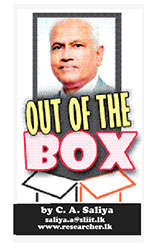 On the morning of November 28, 2025, Cyclone Ditwah made an unremarkable entrance, meteorologically speaking. With winds barely scraping 75 km/h, it was classified as merely a “Cyclonic Storm” by the India Meteorological Department. No dramatic satellite spiral. No apocalyptic wind speeds. Just a modest weather system forming unusually close to the equator, south of Sri Lanka.
On the morning of November 28, 2025, Cyclone Ditwah made an unremarkable entrance, meteorologically speaking. With winds barely scraping 75 km/h, it was classified as merely a “Cyclonic Storm” by the India Meteorological Department. No dramatic satellite spiral. No apocalyptic wind speeds. Just a modest weather system forming unusually close to the equator, south of Sri Lanka.
By December’s second week, the numbers told a story of national reckoning: over 650 lives lost, 2.3 million people affected, roughly one in ten Sri Lankans, and economic losses estimated between $6-7 billion. To put that in perspective, the damage bill equals roughly 3-5% of the country’s entire GDP, exceeding the combined annual budgets for healthcare and education. It became Sri Lanka’s deadliest natural disaster since the 2004 tsunami.
The Hydrology of Horror
The answer lies not in wind speed but in water volume. In just 24 hours on 28 November, hydrologists estimate that approximately 13 billion cubic meters of rain fell across Sri Lanka, roughly 10% of the island’s average annual rainfall compressed into a single day. Some areas recorded over 300-400mm in that period. To visualise the scale: the discharge rate approached 150,000 cubic meters per second, comparable to the Amazon River at peak flow, but concentrated on an island 100 times smaller than the Amazon basin.
The soil, already saturated from previous monsoon rains, couldn’t absorb this deluge. Nearly everything ran off. The Kelani, Mahaweli, and Deduru Oya river systems overflowed simultaneously. Reservoirs like Kala Wewa and Rajanganaya had to release massive volumes to prevent catastrophic dam failures, which only accelerated downstream flooding.
Where Development Met Disaster
The human toll concentrated in two distinct geographies, each revealing different failures.
In the Central Highlands, Kandy, Badulla, Nuwara Eliya, Matale, landslides became the primary killer. The National Building Research Organisation documented over 1,200 landslides in the first week alone, with 60% in the hill country. These weren’t random geological events; they were the culmination of decades of environmental degradation. Colonial-era tea and rubber plantations stripped highland forests, increasing soil erosion and landslide susceptibility. Today, deforestation continues alongside unregulated hillside construction that ignores slope stability.
The communities most vulnerable? The Malaiyaha Tamil plantation workers, descendants of indentured labourers brought from South India by the British. Living in cramped “line rooms” on remote estates, they faced both the highest mortality rates and the greatest difficulty accessing rescue services. Many settlements remained cut off for days.
Meanwhile, in the Western Province urban basin, Colombo, Gampaha, Kolonnawa, the Kelani River’s overflow displaced hundreds of thousands. Kolonnawa, where approximately 70% of the area sits below sea level, became an inland sea. Urban planning failures compounded the crisis: wetlands filled in for development, drainage systems inadequate for changing rainfall patterns, and encroachments on flood retention areas all transformed what should have been manageable flooding into mass displacement.
The Economic Aftershock
By 03 December, when the cyclone had degraded to a remnant low, the physical damage inventory read like a national infrastructure audit gone catastrophic:
UNDP’s geospatial analysis revealed exposure: about 720,000 buildings, 16,000 km of roads, 278 km of rail, and 480 bridges in flooded zones. This represents infrastructure that underpins the daily functioning of 82-84% of the national economy.
The agricultural sector faces multi-season impacts. The cyclone struck during the Maha season, Sri Lanka’s major cultivation period, when approximately 563,950 hectares had just been sown. Government data confirms 108,000 hectares of rice paddies destroyed, 11,000 hectares of other field crops lost, and 6,143 hectares of vegetables wiped out. The tea industry, while less damaged than food crops, projects a 35% output decline, threatening $1.29 billion in annual export revenue.
Supply chains broke. Cold storage facilities failed. Food prices spiked in urban markets, hitting hardest the rural households that produce the food, communities where poverty rates had already doubled to 25% following the recent economic crisis.
The Hidden Costs: Externalities
Yet the most consequential damage doesn’t appear in economic loss estimates. These are what economists call externalities, costs that elude conventional accounting but compound human suffering.
Environmental externalities : Over 1,900 landslides in protected landscapes like the Knuckles Range uprooted forest canopies, buried understory vegetation, and clogged streams with debris. These biodiversity losses carry long-term ecological and hydrological costs, habitat fragmentation, compromised watershed function, and increased vulnerability to future slope failures.
Social externalities: Overcrowded shelters created conditions for disease transmission that WHO warned could trigger epidemics of water-, food-, and vector-borne illnesses. The unpaid care work, predominantly shouldered by women, in these camps represents invisible labour sustaining survival. Gender-based violence risks escalate in displacement settings yet receive minimal systematic response. For informal workers and micro-enterprises, the loss of tools, inventory, and premises imposes multi-year setbacks and debt burdens that poverty measurements will capture only later, if at all.
Governance externalities: The first week exposed critical gaps. Multilingual warning systems failed, Coordination between agencies remained siloed. Data-sharing between the Disaster Management Centre, Meteorology Department, and local authorities proved inadequate for real-time decision-making. These aren’t technical failures; they’re symptoms of institutional capacity eroded by years of budget constraints, hiring freezes, and deferred maintenance.
Why This Cyclone Was Different
Climate scientists studying Ditwah’s behaviour note concerning anomalies. It formed unusually close to the equator and maintained intensity far longer than expected after landfall. While Sri Lanka has experienced at least 16 cyclones since 2000, these were typically mild. Ditwah’s behaviour suggests something shifting in regional climate patterns.
Sri Lanka ranks high on the Global Climate Risk Index, yet 81.2% of the population lacks adaptive capacity for disasters. This isn’t a knowledge gap; it’s a resource gap. The country’s Meteorology Department lacks sufficient Doppler radars for precise forecasting. Rescue helicopters are ageing and maintenance are deferred. Urban drainage hasn’t been upgraded to handle changing rainfall patterns. Reservoir management protocols were designed for historical rainfall distributions that no longer apply.
The convergence proved deadly: a climate system behaving unpredictably met infrastructure built for a different era, governed by institutions weakened by austerity, in a landscape where unregulated development had systematically eroded natural defences.

Sources: WHO, UNICEF, UNDP, Sri Lanka Disaster Management Centre, UN OCHA, The Diplomat, Al Jazeera,
The Recovery Crossroads
With foreign reserves barely matching the reconstruction bill, Sri Lanka faces constrained choices. An IMF consideration of an additional $200 million on top of a scheduled tranche offers partial relief, but the fiscal envelope, shaped by ongoing debt restructuring and austerity commitments, forces brutal prioritisation.
The temptation will be “like-for-like” rebuilds replace what washed away with similar structures in the same locations. This would be the fastest path back to normalcy and the surest route to repeat disaster. The alternative, what disaster planners call “Build Back Better”, requires different investments:
* Targeted livelihood support for the most vulnerable: Cash grants and working capital for fisherfolk, smallholders, and women-led enterprises, coupled with temporary employment in debris clearance and ecosystem restoration projects.
* Resilient infrastructure: Enforce flood-resistant building codes, elevate power substations, create backup power routes, and use satellite monitoring for landslide-prone areas.
* Rapid disaster payments: Automatically scale up cash aid through existing social registries, with mobile transfers and safeguards for women and disabled people.
* Insurance for disasters: Create a national emergency fund triggered by rainfall and wind data, plus affordable microinsurance for fishers and farmers.
* Restore natural defences: Replant mangroves and wetlands, dredge rivers, and strictly enforce coastal building restrictions, relocating communities where necessary.
The Reckoning
The answers are uncomfortable. Decades of prioritising economic corridors over drainage systems. Colonial land-use patterns perpetuated into the present. Wetlands sacrificed for development. Budget cuts to the institutions responsible for warnings and response. Building codes are unenforced. Early warning systems are under-resourced. Marginalised communities settled in the riskiest locations with the least support.
These aren’t acts of nature; they’re choices. Cyclone Ditwah made those choices visible in 13 billion cubic meters of water with nowhere safe to flow.
As floodwaters recede and reconstruction begins, Sri Lanka stands at a crossroads. One path leads back to the fragilities that made this disaster inevitable. The other, more expensive, more complex, more uncomfortable, leads to systems designed not to withstand the last disaster but to anticipate the next ones.
In an era of warming oceans and intensifying extremes, treating Ditwah as a once-in-a-generation anomaly would be the most dangerous assumption of all.
(The writer, a senior Chartered Accountant and professional banker, is Professor at SLIIT, Malabe. The views and opinions expressed in this article are personal.)
Features
Revival of Innovative systems for reservoir operation and flood forecasting
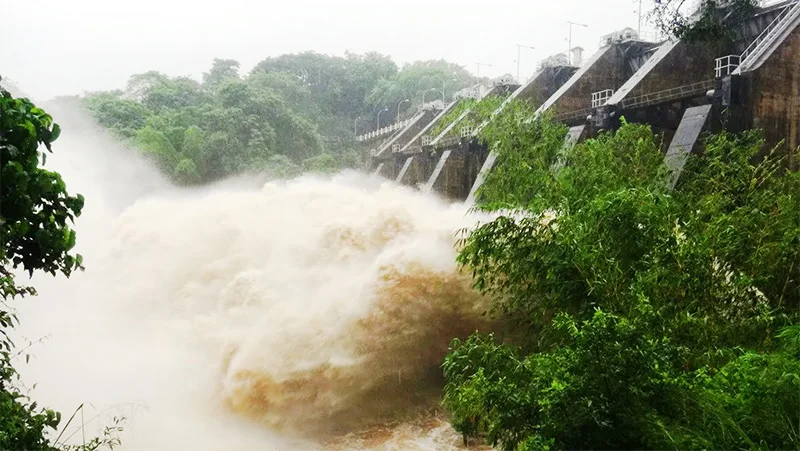
Most reservoirs in Sri Lanka are agriculture and hydropower dominated. Reservoir operators are often unwilling to acknowledge the flood detention capability of major reservoirs during the onset of monsoons. Deviating from the traditional priority for food production and hydropower development, it is time to reorient the operational approach of major reservoir operators under extreme events, where flood control becomes a vital function. While admitting that total elimination of flood impacts is not technically feasible, the impacts can be reduced by the efficient operation of reservoirs and effective early warning systems.
At the very outset, I would like to mention that the contents in this article are based on my personal experience in the Irrigation Department (ID), and there is no intention to disrespect their contributions during the most recent flood event. The objective is to improve the efficiency and the capability of the human resources available in the ID and other relevant institutions to better respond to future flood disasters.
Reservoir operation and flood forecasting
Reservoir management is an important aspect of water management, as water storage and release are crucial for managing floods and droughts. Several numerical models and guidelines have already been introduced to the ID and MASL during numerous training programs for reservoir management and forecasting of inflows.
This article highlights expectations of engineering professionals and discusses a framework for predicting reservoir inflows from its catchment by using the measured rainfall during the previous few days. Crucially, opening the reservoir gates must be timed to match the estimated inflow.
Similarly, rainfall-runoff relationships had been demonstrated and necessary training was provided to selected engineers during the past to make a quantitative (not qualitative) forecast of river water levels at downstream locations, based on the observed rainfall in the upstream catchment.
Already available information and technology
Furthermore, this article highlights the already available technology and addresses certain misinformation provided to the mass media by some professionals during recent discussions. These discrepancies are primarily related to the opening of reservoir gates and flood forecasting.
A. Assessing the 2025 Flood Magnitude
It is not logically sound to claim that the 2025 flood in the Kelani basin was the highest flood experienced historically. While, in terms of flood damage, it was probably the worst flood experienced due to rapid urbanisation in the lower Kelani basin. We have experienced many critical and dangerous floods in the past by hydraulic definition in the Kelani Ganga.
Historical water levels recorded at the Nagalagam Street gauge illustrate this point: (See Table)

In view of the above data, the highest water level recorded at the Nagalagam river gauge during the 2025 flood was 8.5 ft. This was a major flood, but not a critical or dangerous flood by definition.
B. Adherence to Reservoir Standing Orders
According to the standing orders of the ID, water levels in major reservoirs must be kept below the Full Supply Level (FSL) during the Northeast (NE) monsoon season (from October to March) until the end of December. According to my recollection, this operational height is 1.0m below the FSL. Therefore, maintaining a reservoir below the FSL during this period is not a new practice; it explicitly serves the dual purpose of dam safety and flood detention for the downstream areas.
C. Gate Operation Methodology
When a reservoir is reaching the FSL, the daily operation of gates is expected to be managed so that the inflow of water from the catchment rainfall is equal to the outflow through the spill gates (Inflow * Outflow). The methodology for estimating both the catchment inflow and the gate outflow is based on very simple formulas, which have been previously taught to the technical officers and engineers engaged in field operations.
D. Advanced Forecasting Capabilities
Sophisticated numerical models for rainfall-runoff relationships are available and known to subject specialists of the ID through the training provided over the last 40 years. For major reservoirs, the engineers in charge of field operations could be trained to estimate daily inflows to the reservoirs, especially in cases where the simple formulas mentioned in section C are not adequate.
Design concept of reservoir flood gates
Regarding the provision of reservoir spill gates, one must be mindful of the underlying principles of probability. Major reservoir spillways are designed for very high return periods, such as 1,000 and 10,000 years. If the spillway gates are opened fully when a reservoir is at full capacity, this can produce an artificial flood of a very large magnitude. A flood of such magnitude cannot occur under natural conditions. Therefore, reservoir operators must be mindful in this regard to avoid any artificial flood creation.
In reality, reservoir spillways are often designed for the sole safety of the reservoir structure, often compromising the safety of the downstream population. This design concept was promoted by foreign funding agencies in recent times to safeguard their investment for dams. Consequently, the discharge capacities of these spill gates significantly exceed the natural carrying capacity of river downstream. This design criterion requires serious consideration by future designers and policymakers.
Undesirable gate openings
The public often asks a basic question regarding flood hazards in a river system with reservoirs: Why is flooding more prominent downstream of reservoirs compared to the period before they were built? This concern is justifiable based on the following incidents.
For instance, why do Magama in Tissamaharama face flood threats after the construction of the massive Kirindi Oya reservoir? Similarly, why does Ambalantota flood after the construction of Udawalawe Reservoir? Furthermore, why is Molkawa in the Kalutara District area getting flooded so often after the construction of Kukule reservoir?
These situations exist in several other river basins too. Engineers must therefore be mindful of the need to strictly control the operation of reservoir gates by their field staff. The actual field situation can sometimes deviate significantly from the theoretical technology discussed in air- conditioned rooms. Due to this potential discrepancy, it is necessary to examine whether gate operators are strictly adhering to the operational guidelines, as gate operation currently relies too much on the discretion of the operator at the site.
In 2003, there was severe flood damage below Kaudulla reservoir in Polonnaruwa. I was instructed to find out the reason for this flooding by the then Minister of Mahaweli & Irrigation. During my field inspection, I found that the daily rainfall in the area had not exceeded 100mm, yet the downstream flood damage was unbelievable. I was certain that 100mm of rainfall could not create a flood of that magnitude. Further examination suggested that this was not a natural flood, but was created by the excessive release of water from the radial gates of the Kaudulla reservoir. There are several other similar incidents and those are beyond the space available for this document.
Revival of Innovative systems
It may be surprising to note the high quality of real-time flood forecasts issued by the ID for the Kelani River in the late 1980s and early 1990s. This was achieved despite the lack of modern computational skills and advanced communication systems. At that time, for instance, mobile phones were non-existent. Forecasts were issued primarily via the Sri Lanka Broadcasting Corporation (SLBC )in news bulletins.
A few examples of flood warning issued during the past available in official records of the ID are given below:
Forecast issued at 6th June 1989 at 5.00 PM
“The water level at Nagalagam street river gauge was at 9 ft 0 inches at 5.0 PM. This is 1.0 ft above the major flood level. Water level is likely to rise further, but not likely to endanger the Kelani flood bund”.
Eng. NGR. De Silva, Director Irrigation
Forecast issued at 30th Oct 1991 at 6.00 PM
“The water level at Nagalagam street river gauge was at 3 ft 3 inches at 6.0 PM. The water level likely to rise further during the next 24 hours, but will not exceed 5.0 ft.”
Eng. K.Yoganathan, Director Irrigation
Forecast issued at 6th June 1993 at 10.00 AM:
“The water level at Nagalagam street river gauge was at 4 ft 6 inches last night. The water level will not go above 5.0 ft within the next 24 hours.”
Eng. K.Yoganathan, Director Irrigation
Forecast issued at 8th June 1993 at 9.00 AM:
“The water level at Nagalagam Street River gauge was at 4 ft 6 inches at 7.00 AM. The water level will remain above 4.0 ft for the next 12 hours and this level will go below 4.0 ft in the night.
The water level is not expected to rise within next 24 hours.”
Eng.WNM Boteju,Director of Irrigation
Conclusion
Had this technology been consistently and effectively adopted, we could have significantly reduced the number of deaths and mitigated the unprecedented damage to our national infrastructure. The critical question then arises: Why is this known, established flood forecasting technology, already demonstrated by Sri Lankan authorities, not being put into practice during recent disasters? I will leave the answer to this question for social scientists, administrators and politicians in Sri Lanka.
Features
Rebuilding Sri Lanka for the long term
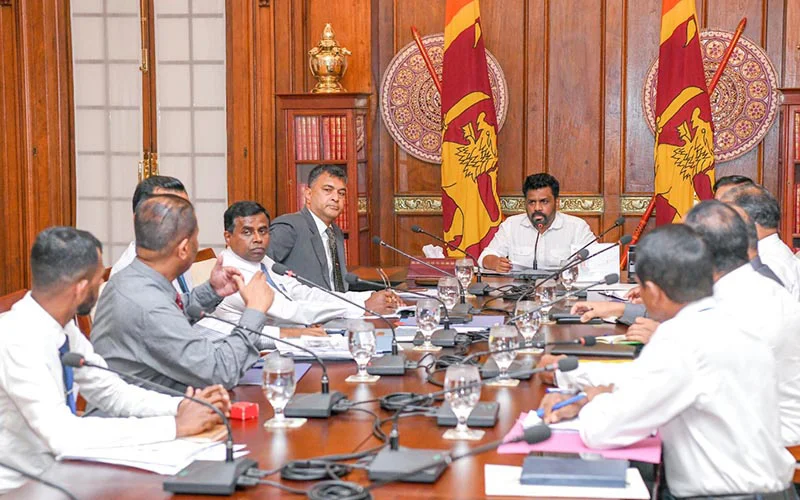
The government is rebuilding the cyclone-devastated lives, livelihoods and infrastructure in the country after the immense destruction caused by Cyclone Ditwah. President Anura Kumara Dissanayake has been providing exceptional leadership by going into the cyclone affected communities in person, to mingle directly with the people there and to offer encouragement and hope to them. A President who can be in the midst of people when they are suffering and in sorrow is a true leader. In a political culture where leaders have often been distant from the everyday hardships of ordinary people, this visible presence would have a reassuring psychological effect.
The international community appears to be comfortable with the government and has been united in giving it immediate support. Whether it be Indian and US helicopters that provided essential airlift capacity or cargo loads of relief material that have come from numerous countries, or funds raised from the people of tiny Maldives, the support has given Sri Lankans the sense of being a part of the world family. The speed and breadth of this response has contrasted sharply with the isolation Sri Lanka experienced during some of the darker moments of its recent past.
There is no better indicator of the international goodwill to Sri Lanka as in the personal donations for emergency relief that have been made by members of the diplomatic corps in Sri Lanka. Such gestures go beyond formal diplomacy and suggest a degree of personal confidence in the direction in which the country is moving. The office of the UN representative in Sri Lanka has now taken the initiative to launch a campaign for longer term support, signalling that emergency assistance can be a bridge to sustained engagement rather than a one-off intervention.
Balanced Statement
In a world that has turned increasingly to looking after narrow national interests rather than broad common interests, Sri Lanka appears to have found a way to obtain the support of all countries. It has received support from countries that are openly rivals to each other. This rare convergence reflects a perception that Sri Lanka is not seeking to play one power against another, and balancing them, but rather to rebuild itself on the basis of stability, inclusiveness and responsible governance.
An excerpt from an interview that President Dissanayake gave to the US based Newsweek magazine is worth reproducing. In just one paragraph he has summed up Sri Lankan foreign policy that can last the test of time. A question Newsweek put to the president was: “Sri Lanka sits at the crossroads of Chinese built infrastructure, Indian regional influence and US economic leverage. To what extent does Sri Lanka truly retain strategic autonomy, and how do you balance these relationships?”
The president replied: “India is Sri Lanka’s closest neighbour, separated by about 24 km of ocean. We have a civilisational connection with India. There is hardly any aspect of life in Sri Lanka that is not connected to India in some way or another. India has been the first responder whenever Sri Lanka has faced difficulty. India is also our largest trading partner, our largest source of tourism and a significant investor in Sri Lanka. China is also a close and strategic partner. We have a long historic relationship—both at the state level and at a political party level. Our trade, investment and infrastructure partnership is very strong. The United States and Sri Lanka also have deep and multifaceted ties. The US is our largest market. We also have shared democratic values and a commitment to a rules-based order. We don’t look at our relations with these important countries as balancing. Each of our relationships is important to us. We work with everyone, but always with a single purpose – a better world for Sri Lankans, in a better world for all.”
Wider Issues
The President’s articulation of foreign relations, especially the underlying theme of working with everyone for the wellbeing of all, resonates strongly in the context of the present crisis. The willingness of all major partners to assist Sri Lanka simultaneously suggests that goodwill generated through effective disaster response can translate into broader political and diplomatic space. Within the country, the government has been successful in calling for and in obtaining the support of civil society which has an ethos of filling in gaps by seeking the inclusion of marginalised groups and communities who may be left out of the mainstream of development.
Civil society organisations have historically played a crucial role in Sri Lanka during times of crisis, often reaching communities that state institutions struggle to access. Following a meeting with CSOs, at which the president requested their support and assured them of their freedom to choose, the CSOs mobilised in all flood affected parts of the country, many of them as part of a CSO Collective for Emergency Response. An important initiative was to undertake the task of ascertaining the needs of the cyclone affected people. Volunteers from a number of civil society groups fanned out throughout the country to collect the necessary information. This effort helped to ground relief efforts in real needs rather than assumptions, reducing duplication and ensuring that assistance reached those most affected.
The priority that the government is currently having to give to post-cyclone rebuilding must not distract it from giving priority attention to dealing with postwar issues. The government has the ability and value-system to resolve other national problems. Resolving issues of post disaster rebuilding in the aftermath of the cyclone have commonalities in relation to the civil war that ended in 2009. The failure of successive governments to address those issues has prompted the international community to continuously question and find fault with Sri Lanka at the UN. This history has weighed heavily on Sri Lanka’s international standing and has limited its ability to fully leverage external support.
Required Urgency
At a time when the international community is demonstrating enormous goodwill to Sri Lanka, the lessons learnt from their own experiences, and the encouraging support they are giving Sri Lanka at present, can and must be utilised. The government under President Dissanayake has committed to a non-racist Sri Lanka in which all citizens will be treated equally. The experience of other countries, such as the UK, India, Switzerland, Canada and South Africa show that problems between ethnic communities also require inter community power sharing in the form of devolution of power. Countries that have succeeded in reconciling diversity with unity have done so by embedding inclusion into governance structures rather than treating it as a temporary concession.
Sri Lanka’s present moment of international goodwill provides a rare opening to learn from these experiences with the encouragement and support of its partners, including civil society which has shown its readiness to join hands with the government in working for the people’s wellbeing. The unresolved problems of land resettlement, compensation for lost lives and homes, finding the truth about missing persons continue to weigh heavily on the minds and psyche of people in the former war zones of the north and east even as they do so for the more recent victims of the cyclone.
Unresolved grievances do not disappear with time. They resurface periodically, often in moments of political transition or social stress, undermining national cohesion. The government needs to ensure sustainable solutions not only to climate related development, but also to ethnic peace and national reconciliation. The government needs to bring together the urgency of disaster recovery with the long-postponed task of political reform as done in the Indonesian province of Aceh in the aftermath of the 2004 tsunami for which it needs bipartisan political support. Doing so could transform a national tragedy into a turning point for long lasting unity and economic take-off.
by Jehan Perera
-

 Business6 days ago
Business6 days agoCabinet approves establishment of two 50 MW wind power stations in Mullikulum, Mannar region
-
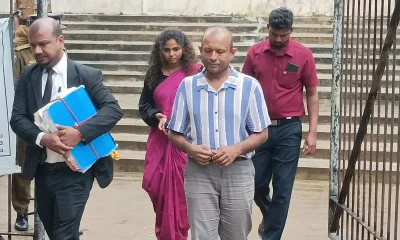
 News7 days ago
News7 days agoGota ordered to give court evidence of life threats
-
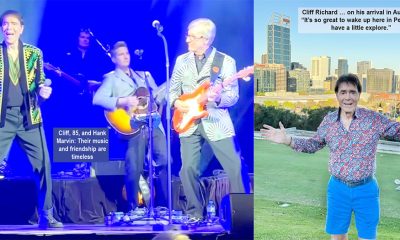
 Features7 days ago
Features7 days agoCliff and Hank recreate golden era of ‘The Young Ones’
-
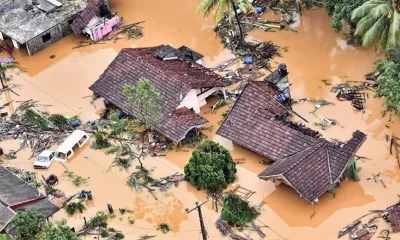
 Features7 days ago
Features7 days agoSri Lanka and Global Climate Emergency: Lessons of Cyclone Ditwah
-

 Editorial7 days ago
Editorial7 days agoExperience vs. Inexperience
-
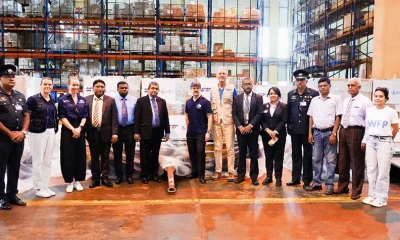
 News7 days ago
News7 days agoWFP scales up its emergency response in Sri Lanka
-

 Features4 days ago
Features4 days agoWhy Sri Lanka Still Has No Doppler Radar – and Who Should Be Held Accountable
-

 Features6 days ago
Features6 days agoDitwah: A Country Tested, A People United













